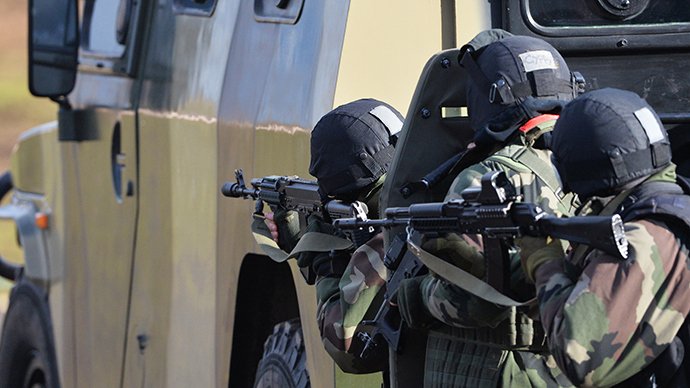(LawFare) Russian aggression is a central concern of the foreign and security policy community, with debate focusing on what Russian President Vladimir Putin’s intentions are and how best to deter him. But missing from much of the discussion is the fact that a variety of semi-state security groups, with a hazy relationship to Moscow’s central authorities, are playing an increasing role in Russian actions both at home and abroad. The United States and other Western states must develop a better understanding of the complex motives and economic interests held by these opaque and informally commanded security forces to ensure the best possible attribution of and response to any hostile acts they commit. This will require recognizing that they are likely not always following Putin’s direct orders.
While many scholars and analysts now have a sophisticated understanding of the roles played by private military and security firms around the world, the array of semi-state security actors mobilized by Russia is unique—and noteworthy. Putin’s Russia is replacing the traditional notion, held by most Western countries as well as the Soviet Union, that states should have ultimate command and control over how armed force is used on their territories or in their name abroad. Instead, the new Russian model is centered on ambiguity, and the Kremlin even seems comfortable with the fact that these semi-state actors often have distinct commercial interests, separate from the Russian state. When a well-armed state with a growing international presence chooses to redefine the relationship between sovereignty and force, the magnitude and variety of threats that it might produce is being redefined as well. […]
Read More © LawFare blog











